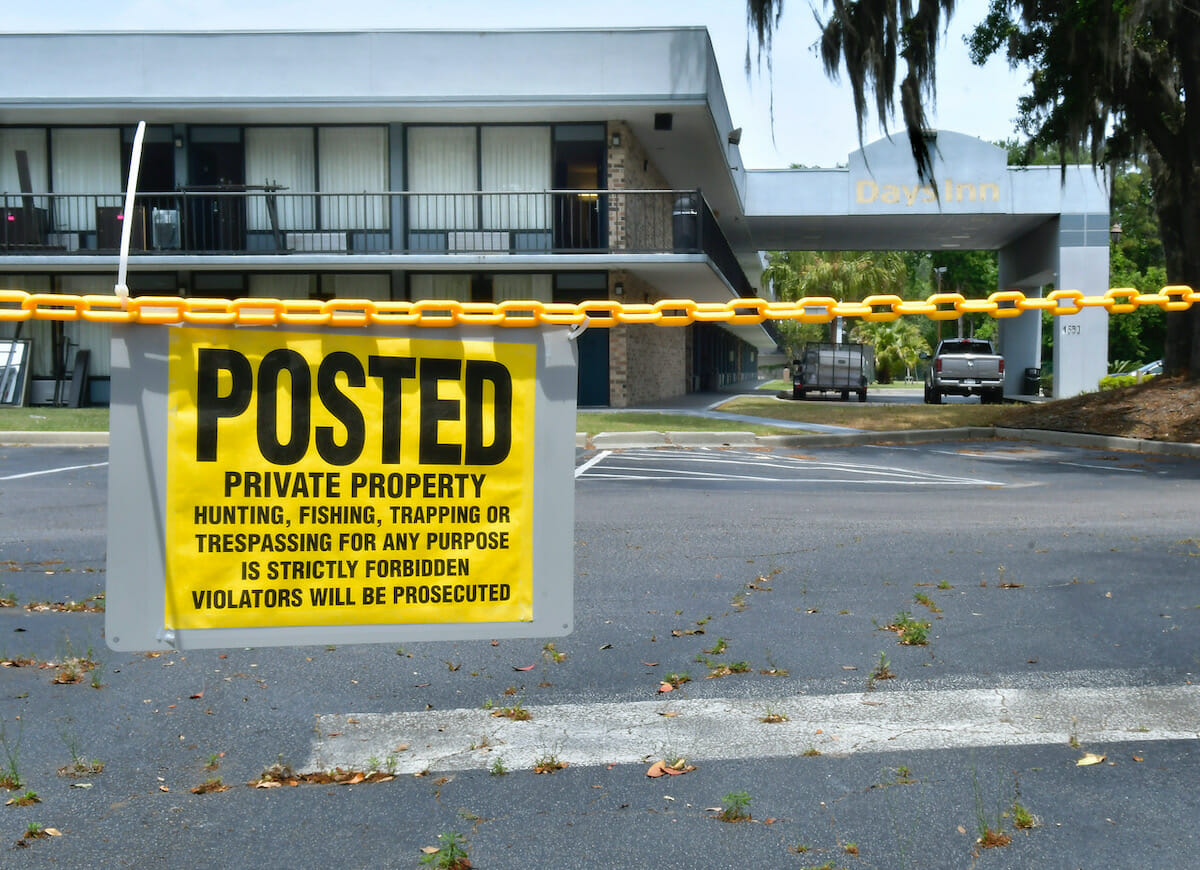By Tony Kukulich
A California-based developer plans to convert a recently purchased Port Royal hotel into apartments that will be rented at discounted rates.
The former Days Inn located at 1660 Ribaut Road was acquired by Vivo Living at the end of April and will be rebranded as Vivo Port Royal. The purchase price was not disclosed.
Vivo Living specializes in converting low-demand hotels and other buildings into affordable apartment complexes for renters. Their stated mission is to “solve America’s housing affordability crisis through adaptive reuse while reducing traffic, waste and sprawl.” The apartments are expected to rent at 10 percent to 20 percent below market rates.
“Vivo aims to reduce traffic, waste and sprawl by carefully selecting each location to be in physical proximity to shopping, markets, entertainment and other necessities,” said Dan Norville, founder and CEO of Vivo Living. “We are reusing buildings versus building ground-up. Adaptive reuse is the most environmentally friendly way of developing. We are basically a building recycling company.”
The Ribaut Road property is the first acquired by the developer in Beaufort County, but the third in the state purchased for the purpose of conversion to apartments. The two previously purchased properties are located in North Charleston and Greenville. The company owns 18 such properties nationwide.
“We’re excited about the transition,” Town Manager Van Willis said. “I know they’re not large units, but they could be at a price point that’s more palatable for some of our working people. It’s still a little early, but it’s exciting for us in a way.”
In addition to local demand for workforce housing to support those who work in the service economy, the site’s favorable zoning was a prime factor in Vivo’s selection of the Port Royal hotel for purchase and conversion, said Norville.
“In terms of use, it’s an allowed use,” Willis explained, “But what it really comes down to is making sure that it’s building code compliant more than anything. The use itself is permitted in the zoning district they’re currently in.”
A listing for the Days Inn that appears on the website loopnet.com states that the 56,875-square foot, two-story building was built in 1986. It featured 140 rooms on a 4.1-acre lot. Each of those 140 rooms will be converted into an apartment.
“We try to keep the unit count the same so as to provide as many housing units as possible,” Norville explained. “It also helps to keep the rents at a reasonable and attainable level given the units are primarily studios, which are cheaper to rent than a one- or two-bedroom unit.”
In the conversion process, each apartment will receive new flooring, paint and window treatments. Additionally, new kitchens will be installed with stainless steel appliances. Floor plans for the Port Royal project are not yet available. A similar Vivo Living initiative in New Braunfels, Texas features 250- to 300-square foot efficiencies with a bed, a sitting area, refrigerator, two-burner stove and a small sink in addition to a bathroom with a shower and sink.
The site will also feature a living-room lobby with free Wi-Fi, lounge areas, a pool, fitness centers and community-oriented programs and events.
The hotel will continue to operate while the conversion process is under way, in part, Norville said, to give construction workers involved with the project a place to stay. Vivo Living will serve as the property manager for the location.
“We would like to deliver in phases to get some much needed housing supply to the market sooner rather than later,” Norville explained. “If we can deliver the units in phases then we could likely get the first building available for lease in six to eight months.”
Tony Kukulich is a recent transplant to the Lowcountry. A native of Wilmington, Del., he comes to The Island News from the San Francisco Bay Area where he spent seven years as a reporter and photographer for several publications. He can be reached at tony.theislandnews@gmail.com.







